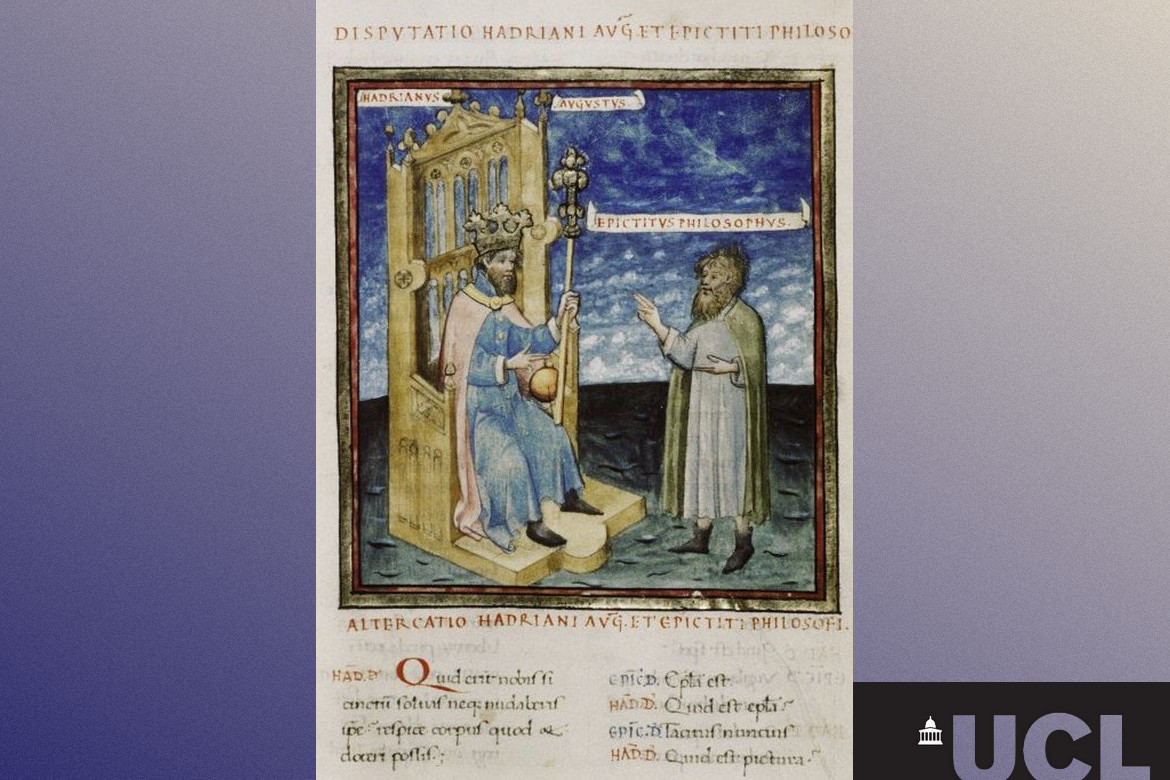In his lecture at the UCL Institute on Friday 15th November 2024, titled Freedom and Self-Esteem in Epictetus, Attila Németh explores how Epictetus, a key figure of the imperial Stoa, understood the complex relationship between shame, moral conscience and the divine in shaping an individual’s self-evaluation and self-esteem.
Time: Friday 15th November 2024 at 12:00
Venue: UCL Institute of Advanced Studies: Common Ground Space; Also on Zoom (you can find the links on the event's webpage, here or on this post)
Abstract
This paper explores how Epictetus, a key figure of the imperial Stoa, understood the complex relationship between shame, moral conscience, and the divine in shaping an individual's self-evaluation and self-esteem. Examining Epictetus’ perspective on self-esteem is particularly relevant, not only because it has seldom been studied but also due to its close resemblance to the theoretical foundations of contemporary psychotherapy. Through this lens, the paper will evaluate how the concepts of ethical responsibility and dignity manifest in personal decision-making. Epictetus posited that reason is the only truly free human faculty, enabling individuals to distinguish between reasonable and unreasonable behaviors. This discernment empowers them to assess what is ‘according to nature’ in different contexts, which must also be evaluated in relation to their unique character. For example, choosing to hold out a chamber pot for someone out of fear of punishment (Disc. 1.2.7-11) transcends mere compliance; it becomes a significant reflection of one’s self-worth and dignity. When confronted with such dilemmas, individuals must consider the value they assign to themselves and acknowledge their divine capacity for free will. This paper will delve into these themes within the context of the imperial Stoa, with a particular focus on the connections and potential influences between Seneca and Epictetus.
Attila Németh is Senior Research Fellow, HUN-REN, Research Centre for the Humanities, Institute of Philosophy, Budapest, Hungary. He is the author of Epicurus on the Self (London and New York: Routledge, 2017), co-editor of The Self in Ancient and Early Modern Philosophy (London: Bloomsbury Academic, 2025), co-editor of Esteem and the Self in the History of Philosophy (London and New York: Routledge, 2026) and co-founder of the Forum of Hellenistic and Roman Philosophy.




